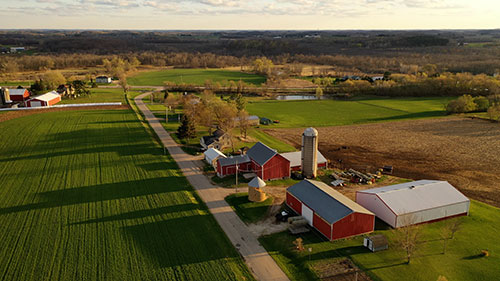
(Reviewed June 2025)
For EB-5 investors and industry professionals seeking faster EB-5 processing times and lower investment thresholds, understanding the advantages of a Rural Targeted Employment Area (TEA) is essential. Rural TEAs are specially designated regions that fall outside major metropolitan areas or large municipalities and offer significant benefits under the EB-5 program. Projects located in these areas not only qualify investors for the reduced minimum investment of $800,000 but also grant access to priority processing and a dedicated pool of set-aside visas. These advantages—introduced and reinforced by the 2022 Reform and Integrity Act (RIA)—make rural TEA investments a compelling pathway for investors aiming to expedite their U.S. immigration journey.
What is a rural TEA for the EB-5 program?
A rural Targeted Employment Area (TEA) is an area not located within a metropolitan statistical area (MSA) as designated by the Office of Management and Budget; or on the borders of a municipality with a population of 20,000 or more based on the most recent decennial census.
What does a rural TEA mean for industry EB-5 professionals and investors?
An EB-5 project that is located in a rural TEA qualifies those EB-5 investors for the reduced minimum investment amount of $800,000 and priority processing of Form I-526 by United States Citizenship and Immigration Services. Those investors also qualify for set-aside visas from the rural TEA classification, which makes up 20% of the yearly allocation of EB-5 visas.
EB-5 developers and investors must provide documents and proof, such as location and population data, with their form I-526 that an EB-5 project site qualifies as a rural TEA. USCIS requires the information to be current and from credible sources of information. Under the 2022 Act, only USCIS can now designate high-unemployment TEAs.
How did the RIA change TEAs for the EB-5 visa?
The RIA states that USCIS must prioritize processing and adjudicate EB-5 petitions for regional center investments in rural TEA areas. The RIA also states certain EB-5 immigrant visa set-asides for investors in TEAs, namely 20% for investor projects in a rural TEA area.
A notable change in the RIA bill was the creation of reserved visas. Since the reserved visas make up a new category of available immigrant visas there is no cut-off date making the wait time for investors much shorter. Reserved visas help investors from countries with visa backlogs to skip the line in front of other applicants and speed up the process to immigrate. Reserved visas are given priority even when a particular country is experiencing retrogression. The RIA provides that USCIS shall prioritize I-526s based on investments in rural areas. As a result, some investors may be able to immigrate to the U.S. much earlier. The benefit of rural TEA’s is that they make up a small percentage of EB-5 projects, which means there is lower likelihood of competition for reserved visas.
What are the 2025 trends when it comes to Rural TEAs?
In 2025, Rural TEA projects under the EB-5 program are experiencing significant growth, driven by policy reforms and shifting investor priorities. The RIA introduced substantial incentives for rural investments, including a reduced minimum investment of $800,000, priority processing for Form I-526 petitions, and the allocation of 20% of EB-5 visas specifically for rural projects.
Key trends include:
- Increased Investor Interest, especially of Investors from countries with high visa demand, such as China and India.
- There’s a notable diversification in the types of rural projects attracting EB-5 investments.
- Developers are strategically choosing rural locations to qualify for EB-5 incentives
- Underutilization of Set-Aside Visas: Despite the incentives, data from early 2025 indicates that the issuance of rural set-aside visas remains below the allocated limit.
Explore Rural TEA (Targeted Employment Area) by State
- Alabama
- Alaska
- Arizona
- Arkansas
- California
- Colorado
- Connecticut
- Delaware
- Florida
- Georgia
- Hawaii
- Idaho
- Illinois
- Indiana
- Iowa
- Kansas
- Kentucky
- Louisiana
- Maine
- Maryland
- Massachusetts
- Michigan
- Minnesota
- Mississippi
- Missouri
- Montana
- Nebraska
- Nevada
- New Hampshire
- New Jersey
- New Mexico
- New York
- North Carolina
- North Dakota
- Ohio
- Oklahoma
- Oregon
- Pennsylvania
- Rhode Island
- South Carolina
- South Dakota
- Tennessee
- Texas
- Utah
- Vermont
- Virginia
- Washington
- West Virginia
- Wisconsin
- Wyoming






